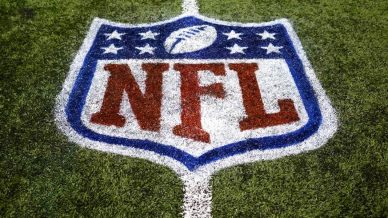The NFL’s decision to force players to stand during the National Anthem has drawn both support and criticism. The issue had become somewhat of an afterthought, but has now been pushed back into the forefront. Some believe that this decision is a good thing and upholds the respect warranted by the American flag and National Anthem. Others believe that the policy infringes on players’ rights as citizens and is an attempt to bury their protest.
President Donald Trump expressed his support of the decision during an interview with Fox and Friends. Trump took it a step further and said he disagreed with the league’s decision to allow players to stay in the locker room for the protest should they choose to do so. Trump has been criticizing players kneeling for some time now and said he thinks they should be removed from the league. It is rumored that he exerted influence on the team owners in making in their decision on this policy change. Should this be the case, regardless of how he or anyone else feels about the kneeling, it is ethically inappropriate to impose your position on others to achieve a certain agenda. Colin Kaepernick, the former player that started this whole kneeling protest, and his lawyer cited a Cornell Law School case law that deems it illegal for a government official to influence a private corporation’s employment decision. If Trump did collude with owners, then the rule could be voided.
Not all owners were persuaded that the policy is necessary or valid, and jn fact, co-owner of the New York Jets has announced that he will pay the fines for any player on his team who wants to kneel during the National Anthem. Despite the fact that the protests have offended enough fans that game attendance was dramatically impacted for some teams, both team owners and players seem unconcerned about how this may affect the team’s bottom line or the loyalty of their fan base. It will be interesting to see how the public responds to the Jets’ indifference to the policy.
Some owners echo the sentiment that kneeling during the National Anthem is disrespectful. This policy change gives owners the power to instill fines on players who kneel. The league will also fine teams with players kneeling during the National Anthem. This puts players and teams in an awkward financial position. It would be like being fined at work for voicing your dissent with an employer’s decision.
On the other side of the coin, some see this policy as a way of removing the protests from the limelight altogether. They believe that protesting is a constitutional right and the league has no power to force players to not be allowed to protest. However, people forget the NFL is a private corporation and can impose any policy on their employees that they choose. When these policies begin to mesh with constitutional rights, things can get a bit blurry, but the NFL has the power to establish benchmarks and rules.
Interestingly enough, most NFL stadiums do not close concession stands during the National Anthem. Lots of fans use the time to go procure refreshments before the game starts. Those who oppose the rule see this as a contradiction. The same argument can be made about calling out fans at home watching the game on television. Do they stand in their living rooms? Do people always stand in bars and restaurants?
Pushing players back into the locker room seems to miss the entire point of the protest. These players are protesting to highlight racial inequality and police brutality towards African Americans. Some feel that the league is attempting to mute this issue and bury it under the notion of ‘respect.’
The NFL was certainly feeling the pressure with declining viewership (which they attributed to the protests) and constant beratement from Trump during rallies – he even went so far as to call players that kneeled during the anthem “sons of bitches.” You can see why the NFL wants to rid themselves of this issue, but they ended up lighting a dumpster fire with civil rights in the middle. Whether you support the rule or not, it is certainly an interesting debate. Players will likely seek alternative ways to protest on camera, which will continue this debate and possibly lead to harsher restrictions.

